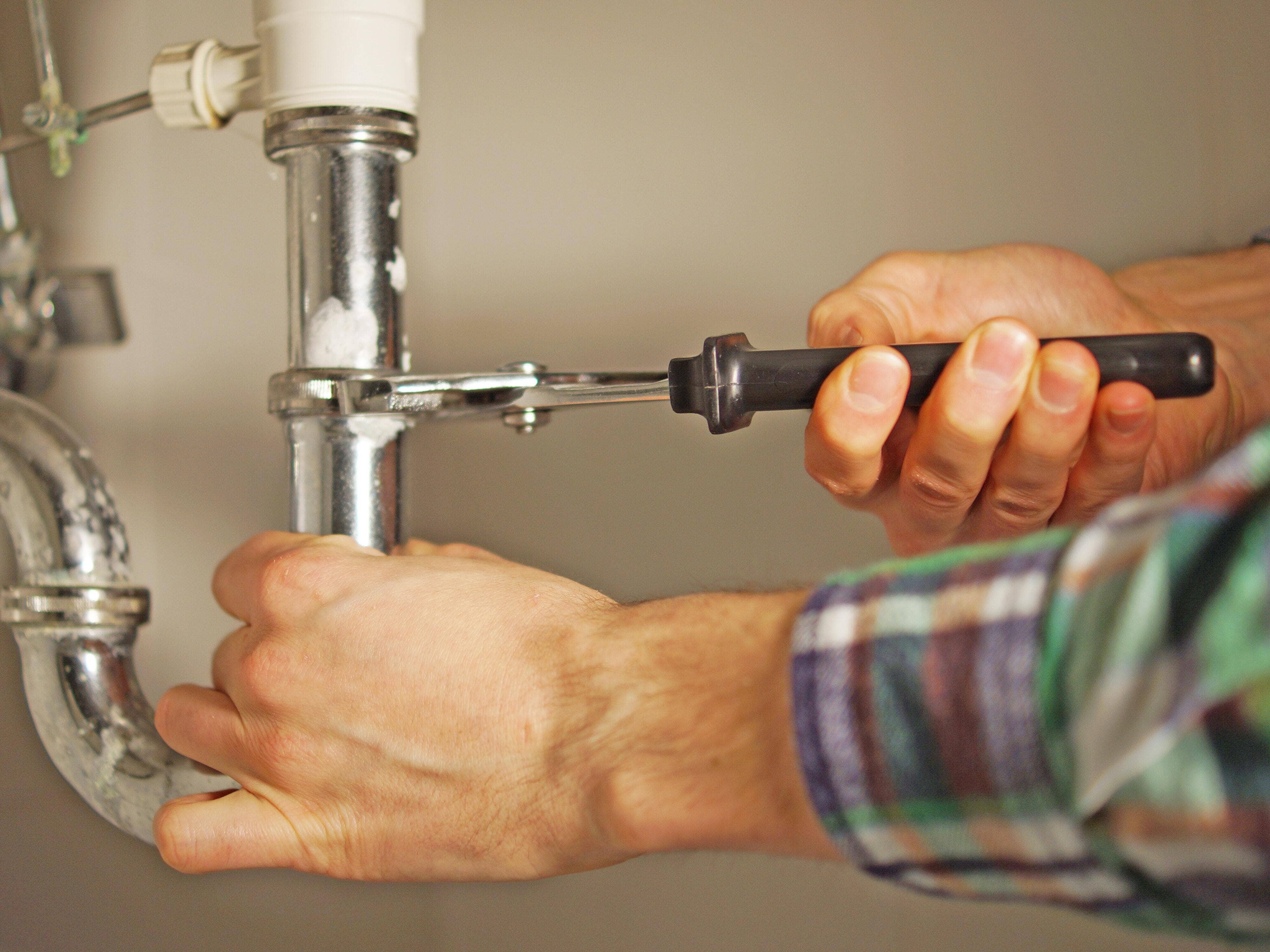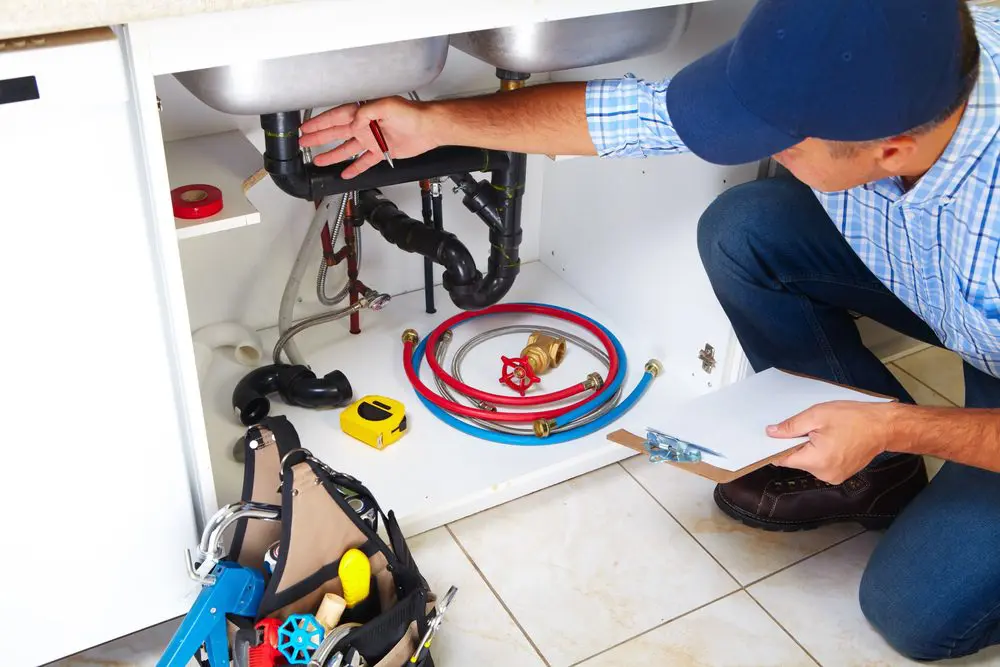Six Surprising Habits That Damage Your Plumbing Fixtures
Six Surprising Habits That Damage Your Plumbing Fixtures
Blog Article
On this page down the page you can find some professional information about Don’t Let an Earthquake Damage Your Plumbing.

The trick to long-term appliances, unsurprisingly, is proper upkeep. There's no hard and fast guideline that can guarantee your plumbing appliances a lengthy wear, but you can prevent unneeded damages as well as fixings by preventing poor plumbing practices.
You should quit doing these 6 points else you'll keep calling your plumber over for minor faults.
Flushing whatever
Yes, your commode drainpipe results in the sewers, however that doesn't suggest you need to discard just anything down the drain. Numerous 'flushable' products are really excellent blockage starters, as an example floss. Asides keeping apparent non-flushable products like cords and plastics out of your commode, you should likewise prevent flushing cotton buds, menstrual products, wipes, daipers as well as condoms down the bathroom drain.
Pouring grease in the sink
We understand properly throwing away grease after a hearty meal is a discomfort. However just pouring it down the tubes can do long-lasting damage to your pipes. "The fat as well as grease can block your drain terribly adequate to compel you to call a plumber," describes Dawson. "Plumbing works best when it's well looked after-- not abused with grease."
Using excessive drainpipe cleaner
Making use of a drain cleaner greater than once or twice a month is an indicator that something severe is going on within your pipelines. Currently, rather than dealing with the major problem, you go for a quick fix; a fizzy drainpipe cleaner. Rightfully, a drain cleaner will take care of the obstruction, however at what cost?
The chemicals in a drain cleanser can accelerate the rust of your pipes. Add that to whatever underlying problem is creating the clog and you might need to a major trouble on your hands.
If you experience way too many obstructions, call your emergency plumber instead of making use of a drainpipe cleaner.
Not rinsing meals prior to packing them right into the dish washer
it's called a dish washer, yet throwing in dishes, pots, as well as frying pans covered in huge food particles can actually trigger some major damages to the appliance, leading to lasting issues down the line. "Property owners may have to get their dish washer fixed more often if they don't rinse their meals before packing, or a minimum of get rid of bigger food items," describes Audrey Monell, owner of Forrest Anderson Plumbing and Air Conditioner in Glendale, Arizona. "Food that obtains stuck on recipes creates the dishwasher to work harder, which can wear down components faster, leading to problems."
DIYing whatever
With plumbing, a stitch in time really does conserve nine. You can stop a fullblown plumbing emergency by calling your plumber at the correct time.
You might have discovered a couple of plumbing hacks from your daddy, however you should recognize where to draw a line and also call a professional. As an example, you might be able to take care of a clog on your own, yet you shouldn't attempt to change a pipe. You might mismatch pipes or overtighten a bolt, triggering more injury and damage than you assumed. Calling a plumber is a safe and cost effective decision.
Not altering your dishwasher hose pipes
One easy method to make sure that you use your dish washer for years is to replace the pipe a minimum of once in five years. This also applies for cleaning maker pipes.
Gradually, food particles, soap and also grease can create obstructions within your pipelines. Replacing them in a timely manner will protect against any presure accumulate that can harm the inner functions of your dishwashing machine or cleaning machine.
A strengthened steel intertwined hose pipe does a terrific job of lengthening your device's usage time.
No wintertime safety measures
Severe weather are bad for your pipelines, especially if they're made of steel. You need to protect your exposed pipelines, and also your water container, even if you have a water heater. You must also shut off your yard hose pipe shutoff as well as any other exterior water channels. These channels are electrical outlets for chilly; you pipelines can begin to ice up from outside if you do not.
Prevent Water Damage from Plumbing and Appliances
Prevent toilet failure
Be patient after you flush and wait for the valve to completely finish refilling the tank and bowl. If an overflow looks imminent, lift off the tank cover and lift the float to shut off water flow to the tank, and then turn off the supply valve.
Twice a year, inspect a toilet’s components, such as the fill, supply, and flush valves, and the supply line. Make sure you can turn off the supply. If you have older screw type valves that are hard to turn or start leaking, consider replacing them with simpler ball valves that are easy to shut off quickly.
Inspect and maintain your water heater
Inspect your anode rod every two years, or every year once the warranty has expired, to determine if it needs to be replaced.
Flush water heater tanks every six months to remove sediment by attaching a garden hose to the valve at the base. For safety, first turn off the power and run hot water until it is cool.
Get an annual inspection from a plumbing professional including the shut-off valve and all piping. Signs of broken valves and loose or wet joints and rust are a sign that more severe damage is coming.
Maintain washing machine supply lines
Look for signs the supply hose may be ready to fail—blisters in the hose, worn tubing, stress cracks, or a loose connection.
Replace the supply hose with a reinforced steel braided hose if it shows any sign of wear.
Tighten the connection if it feels loose. The most common site of failure is near the connection where the hose bends.
Replace supply hoses every five years, even if there is no obvious deterioration or wear. Some signs of deterioration may occur from the inside out and may not be visible until it is too late. When replacing washing machine supply hoses, always choose a reinforced steel braided hose over the traditional un-reinforced rubber hose. These hoses will last longer and are far less likely to result in a catastrophic water loss.
Prevent plumbing failure
Never pour grease down the drain.
Plant trees away from lateral drain lines to prevent roots from damaging piping.
If your home’s sewer system is connected to the city’s sewer system—a particular problem for older homes—or if you are located downhill or below street level, contact a plumbing professional to install a backflow prevention assembly into your sewer system.
Call a professional if you notice signs of a plumbing problem—an increased monthly water bill, banging pipes, rust stains, moisture in the walls or on the floor, and signs of wet soil erosion near the foundation.
https://disastersafety.org/maintenance/prevent-water-damage-from-plumbing-and-appliances/

I hope you liked our excerpt on Can Hard Water Ruin Your Appliances?. Thank you so much for finding the time to browse our blog post. Sharing is caring. Helping others is fun. We truly appreciate reading our article about Don’t Let an Earthquake Damage Your Plumbing.
Call Us Today Report this page